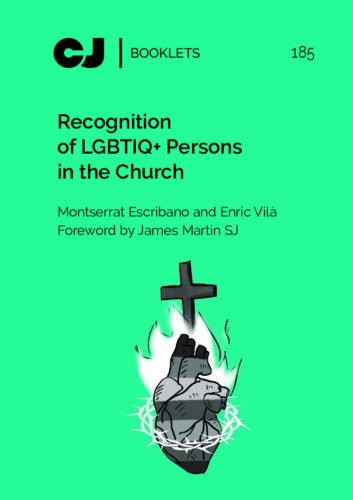LGBTQ Christians are sometimes made uncomfortable when they read or hear the first chapter of St. Paul’s Letter to the Romans (1:26-27), especially when people throw the passage at them as a judge “throws the book” at someone guilty of a crime.
Romans 1:18-34, especially verses 26-27, is often interpreted as a global condemnation of homosexuality. But, as I see it, this is not accurate. The Apostle Paul (as well as the entire Bible) does not consider homosexuality as an “orientation,” that is, something which people do not choose but which they discover in themselves (usually early on in life) and which they are called to integrate into their personality.
Paul in v. 27 is almost certainly speaking of homosexual acts in the context of “sacred prostitution,” which was practised in some Greek and Rome temples of the time, which the Apostle may have noticed during his many missionary voyages. As for verse 26, which speaks of women who swap “natural” relations for “unnatural” ones, it also refers to temple prostitution.
The Apostle Paul (as well as the entire Bible) does not consider homosexuality as an “orientation.”
This female prostitution was heterosexual in form, but it involved the various types of unnatural “contraceptive practices” already in use at that time. (As such, this is also not a condemnation of lesbianism per se.)
The passage of Romans 1:18-34 gives the Bible’s most negative portrait of a pagan humanity, which has consciously rejected God as manifested in creation and in the human conscience. In this passage, humanity has instead chosen idolatry—the worship of the creature, and ultimately, the egotistic self. This passage in no way means that God has rejected or abandoned gay people.
On the contrary, it shows that all people—no matter of what race, religion, social condition or orientation—who consciously reject the truth of God and turn instead to various forms of idolatry are abandoned by God.
This passage in no way means that God has rejected and abandoned gay people.
Although God seeks to draw them back to himself, God respects their liberty and therefore permits them to live in various forms of unfitting conduct, according to the long list of vices mentioned by Paul. This holds true for all people who knowingly reject divine grace.
In his book Love is an Orientation: Elevating the Conversation with the Gay Community, Andrew Marin compares this portrait of humanity to the “negative” of a photograph. He quotes a Protestant pastor who has transformed or “developed” this passage into a positive photo, in which we find the luminous reverse side of the somber and pessimistic picture given by Paul. Those who open their hearts to the love of God receive a grace that will gradually transform their lives and their relationships to unselfish ones, free from manipulation and harmful dependency, full of tenderness and mutual self giving. This promise holds true for LGBTQ people as well.
And perhaps it holds true more so for LGBTQ people, since the unjust rejection and persecutions they have so often endured may make them more open to the healing power of God’s love. This happens more easily when the Lord is presented to them as the loving Father that he is, and not as an arbitrary tyrant or policeman.
Those who open their hearts to the love of God receive a grace that will gradually transform their lives and their relationships.
With this in mind, we can allow the text presented by Marin to resonate more deeply, looking upon it as the reverse side of the dark picture painted by Paul in Rom 1:18-34.
Therefore, God gave them over in their hearts to self-control and purity, that their bodies might be honored among them. For they kept and cherished the truth of God and worshiped and served the Creator, who is blessed forever, rather than the creature. Amen.
For this reason God gave them over to pure and wholesome lives, lived with carefree ease, even in the most intimate relations, so that all received in their own person the due reward of their fidelity.
And just as they saw fit to acknowledge God in all things, God gave them over to a sound mind, to do those things which are proper, being filled with all righteousness, goodness, kindness; full of selflessness, healing, openness, kindliness. They are gentle in speech, always building others up, lovers of God, respectful, humble, self-effacing, inventors of good, obedient to parents, understanding, trustworthy, loving, merciful.
And as they know the ordinance of God, that those who practice such things are possessors of life, they do the same and give hearty approval to those who do likewise.
Let us pray to the Lord to help us make this beautiful vision a reality in our lives.



